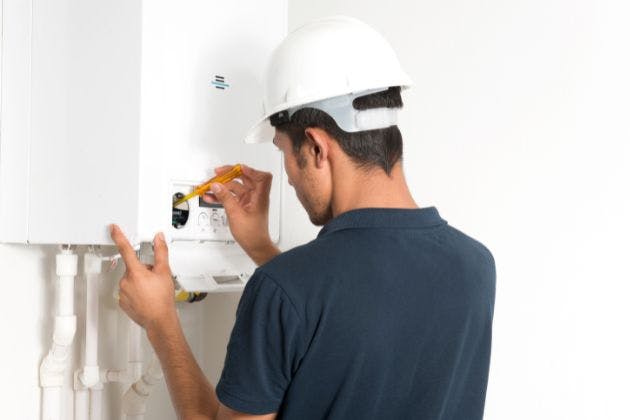Older boilers play a crucial role in keeping homes warm and comfortable, but as they age, they often require more care to maintain performance and safety. Regular servicing helps detect small issues before they become costly problems and ensures the system runs efficiently throughout the colder months. Many homeowners underestimate the frequency with which older boilers should be checked, but doing so can significantly extend their lifespan and reliability.

The Right Servicing Schedule for Ageing Boilers
Older boilers, particularly those over ten years old, benefit from more frequent servicing than newer models. While annual checks are the minimum recommendation, boilers showing signs of wear or inefficiency may need inspections every six months. Regular servicing allows heating engineers to clean key components, check for leaks, and ensure safe combustion. These checks help prevent unexpected breakdowns and keep heating costs under control.
What Heating Engineers Check During a Service
Burner and heat exchanger
Engineers thoroughly clean these components to remove soot, scale, and debris that naturally build up as the boiler operates. This buildup can block heat transfer and reduce energy efficiency. By cleaning and inspecting the burner and heat exchanger, engineers ensure the boiler burns fuel cleanly, delivers steady heat output, and operates safely without the risk of overheating or incomplete combustion.
Flue and ventilation
The flue system is checked for any signs of corrosion, cracks, or blockages that could cause harmful gases to leak back into the home. Engineers also ensure that ventilation openings are clear to allow for proper air intake during combustion. Adequate airflow ensures safe operation, prevents carbon monoxide build-up, and helps the boiler maintain consistent performance even in older systems.
System pressure and seals
Engineers test the pressure levels across the boiler and central heating system to confirm it’s within the correct range. They also inspect seals, joints, and valves for small leaks that can reduce pressure and efficiency. Maintaining proper system pressure prevents issues such as poor radiator performance, noisy operation, or strain on internal components like pumps and expansion vessels.
Electrical connections
All electrical wiring, fuses, and control systems are carefully examined. Loose connections, worn insulation, or faulty components can lead to intermittent faults or complete breakdowns. Engineers ensure that everything, from the thermostat to the ignition system, operates correctly, helping to maintain reliability, prevent electrical hazards, and keep safety systems functioning as intended.
Warning Signs Your Boiler Needs More Frequent Servicing
Unusual noises like banging or whistling
Sounds such as banging, whistling, or gurgling often indicate trapped air, limescale buildup, or problems with the pump or heat exchanger. These noises indicate that the system isn’t circulating water efficiently, which can lead to overheating or pressure issues if left unaddressed.
A drop in heating performance or inconsistent hot water
If your radiators take longer to heat up or you notice fluctuating water temperatures, it may indicate sludge buildup, faulty components, or reduced boiler efficiency. Servicing helps restore even heating and ensures the system delivers hot water consistently throughout your home.
A yellow or flickering pilot light instead of a steady blue flame
A healthy boiler flame should burn a steady blue. A yellow or flickering flame can signal incomplete combustion, which might release carbon monoxide, a serious safety hazard. This should always be checked immediately by a qualified heating engineer.
Frequent pressure drops or leaks around the unit
If your boiler’s pressure gauge often needs topping up or you spot damp patches nearby, there could be a hidden leak or a failing seal. Persistent pressure loss reduces heating efficiency and puts unnecessary strain on internal components. A professional inspection can identify and fix the source before it leads to costly damage.
Benefits of Regular Servicing for Older Boilers
Improved energy efficiency and lower fuel costs
As boilers age, dirt and residue can accumulate in key components, reducing heat transfer and requiring the system to work harder. Regular cleaning and adjustments during servicing help restore efficiency, meaning your boiler uses less fuel to produce the same amount of heat. This translates into noticeable savings on your energy bills.
Reduced risk of costly emergency repairs
A professional service allows engineers to spot worn or failing parts before they cause breakdowns. Replacing small components early can prevent larger system failures, saving you the stress and expense of emergency callouts during cold weather.
Safer operation with fewer carbon monoxide risks
Safety checks are a vital part of every boiler service. Engineers test for gas leaks, flue issues, and incomplete combustion to ensure your system is running safely. This greatly reduces the risk of carbon monoxide leaks, keeping your household protected.
Extended system lifespan and reliability
Regular servicing helps preserve the overall condition of your boiler. By keeping all components clean and well-adjusted, it reduces strain on the system and delays the need for a replacement. A well-maintained older boiler can continue to run efficiently and reliably for years beyond its expected lifespan.
Need Expert Boiler Servicing in Dunmow, Bishops Stortford, Saffron Walden, or Chelmsford?
He@Heating Limited offers professional boiler servicing, carried out by experienced heating engineers. Whether your boiler requires a routine check or a detailed inspection, we ensure it operates safely and efficiently throughout the year. Call us today on 07956575049 or fill out our contact form to book your service appointment.


